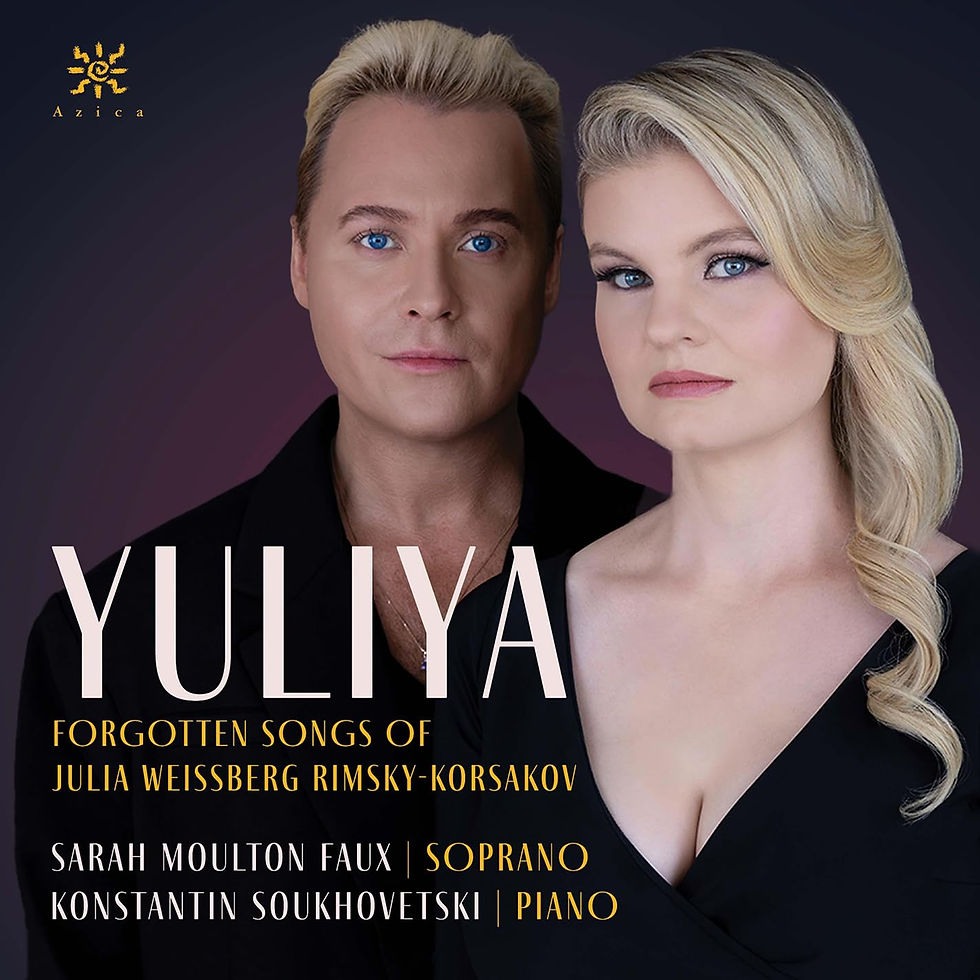Julian Rachlin on violin/viola – Itamar Golan on piano – fantastic teamwork delivered in Brahm
- Dec 6, 2012
- 3 min read
Updated: Jun 15, 2020

Hear the second half, this Saturday, December 8th, when violinist/violist Julian Rachlinand pianist Itamar Golan will continue in their quest to explore the artistry of Johannes Brahms’ complete cycle of sonatas for violin and viola, at the 92Y.(concerts here start at 7.30)
The high-spirited team began their ambitious endeavor with great gusto yesterday evening (December 5th) during their first of two performances encompassing Brahms’ complete sonata cycle for violin/viola and piano.
“Julian is the kind of artist that’s truly spontaneous, and in that sense fabulously adventurous, yet at the same time a little unpredictable to the collaborator. So you always have to be on the lookout for surprises. That keeps you on your toes, but it is very exciting!” says Itamar Golan, who impressed me with his incredibly sensitive touch at the piano during yesterday’s performance. It often felt as if his piano playing was sustaining the ravishing sound of Rachlin’s violin (or viola, at times) with superb self-effacement, yet Golan’s decision to let the violin/viola shine was clearly an exercise in strength and control, not a weakness.

“Especially as a collaborator, there are moments when the music has to erupt in all its force from within you, and there are those moments when you have to sustain the music inside of you, bring out certain colors, holding back the full majestic weight of the piano, to not overshadow the collaborator(s). You have to be naturally able to adapt to the sound of each other. That’s the beautiful thing of what I do: as partners, we bring out different sides in each other. That’s an important ingredient of the magic in playing together, it’s not just about supporting each other or being on the same page or sound-wave rather, there is a bigger spiritual connection; something less visible but very viable: you bring out different forces in the person you are facing and vice versa, the person you are collaborating with brings out different qualities in you.”
As Golan indicated, with Julian, his collaborate performances are always special, as many aspects of their work remain unplanned and grow spontaneously out of their dynamic on stage , which makes their shows together unique and incredibly exciting. That spontaneity came especially to the forefront in their lighter minded but virtuosically performed encores: Kreisler’s Liebesleid und Liebesfreud.

Golan describes himself as a bit of a complicated character, in his modest, yet straight forward honesty, and explained to me that he reacts very emotionally to circumstances in his personal life, and has experienced a great deal of fluctuation within his personal relationships. Despite this, Golan points out that he and Rachlin have managed to preserve a remarkably close friendship and professional relationship for now almost fourteen years: “We had met at each other’s concert performances in Vienna and Paris and soon after decided to perform and record together and we are continuously planning a lot of projects together, in various settings.” The duo often performs alongside Misha Maisky, and Rachlin’s former girlfriend violinist/violist Janine Jansen, to name just a few from their famous roster. Today Golan concertizes around the world, and estimates an amount of circa ninety performances, per year. (Photos: Ilona Oltuski)
Golan previously performed the Brahms sonata cycle for viola/violin with the eminent artist Shlomo Mintz, and recorded the set in 2003 on the Avie label. The two of them also formed a trio along with cellist Matt Heimovitz. Other formidable duo-partnerships included violinists Vadim Repin and Maxim Vengerov. Golan has made recordings for such esteemed labels as Deutsche Gramophone, Decca, Teldec, Sony Classical, EMI and Warner Classics.

Earlier in his career while growing up in Israel, Golan initially pursued a career as a concert pianist, performing at age 7 on Israel’s pianistic stages. He was accepted with a scholarship to NEC by famed pedagogue Robert Shure, who had heard him perform on a visit to Israel, but Golan opted out of his spot at the Conservatory, feeling inadequately equipped to deal with being part of a large institution given his many anxieties. Golan went through a rebellious phase. He spent his angst-ridden teenage years trying on different identities, exploring different countries and religions and “searching for himself.” Golan eventually found a way to come back to music: “I thought I would never play again, but for me, becoming a collaborative pianist seemed to have been my destiny. My teenage anxiety was necessary for me to separate my life from music for a while completely and made it possible for me to rediscover my love for it again, anew. When I started to play with a group of friends, I recognized that this was what I wanted the most.”
In 1991, Golan became the youngest teacher to serve on the faculty of the Manhattan School of Music, and since 1994 he has retained a position as professor of chamber music at the Paris Conservatory, where he resides with his wife Natsuko and their young son.



Comments